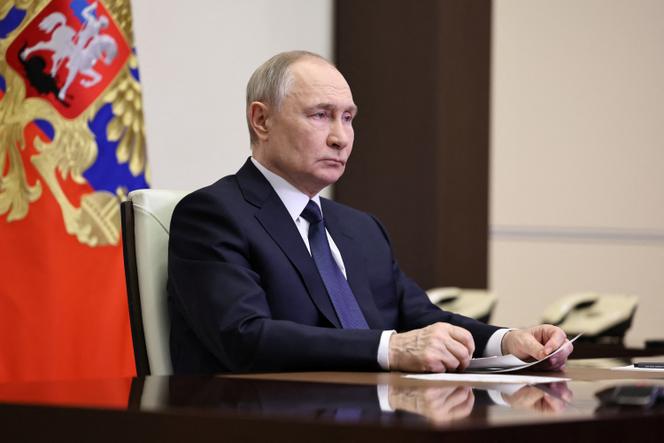


Russian President Vladimir Putin has ordered a surprise three-day ceasefire from May 8-10, coinciding with Moscow's World War II Victory Day commemorations, the Kremlin said on Monday, April 28. Moscow said it expected Kyiv to issue a similar order, and that it stood ready to respond to any violations of the possible halt in fighting. "The Russian side is declaring a ceasefire during the 80th anniversary of Victory Day, from midnight on May 7-8 to midnight on May 10-11. All combat operations will be suspended during this period," the Kremlin said in a statement. "Russia believes that the Ukrainian side should follow this example. In the event of violations of the truce by the Ukrainian side, the Russian armed forces will give an adequate and effective response," it added.
Putin made a similar order to stop combat over Easter – a truce that both sides accused the other of violating hundreds of times, but did lead to a temporary reduction in fighting. Kyiv and its European backers accused Putin of announcing the 30-hour Easter truce as a PR exercise and said he had little desire for peace.
Putin's order of a ceasefire comes at the beginning of what the United States indicated would be a crucial week for the chances of a ceasefire that could determine how long Washington keeps trying to broker a deal. After a meeting with Ukrainian President Volodymyr Zelensky at Pope Francis's funeral on Saturday, Donald Trump questioned whether the Russian leader was serious about peace. "There was no reason for Putin to be shooting missiles into civilian areas, cities and towns, over the last few days. It makes me think that maybe he doesn't want to stop the war, he's just tapping me along," Trump had said on Truth Social. Putin last month rejected a US proposal for a full and unconditional 30-day ceasefire that had been accepted by Ukraine.
Russia had earlier on Monday said it was ready to negotiate directly with Ukraine, but that recognition of its claims over five Ukrainian regions, including Crimea, were "imperative" to resolving the conflict. Russian Foreign Minister Sergei Lavrov said in an interview with Brazilian newspaper O Globo, published on Monday, that "we remain open to negotiations." "But the ball is not in our court. So far, Kyiv has not demonstrated its ability to negotiate," he said, adding Moscow's position on the conflict was "well-known." "International recognition of Russia's ownership of Crimea, Sevastopol, the Donetsk People's Republic, the Lugansk People's Republic, the Kherson and Zaporizhzhia regions is imperative," he said, using the Kremlin's names for the Ukrainian regions.
Ukraine has denounced the annexations as an illegal land grab and says it will never recognise them, while European officials have warned that accepting Moscow's demands set a dangerous precedent that could lead to future Russian aggression. Zelensky said last Friday that Ukraine would "not legally recognize any temporarily occupied territories," and has previously called a demand for Ukraine's demilitarisation "incomprehensible."
Trump, who boasted before his inauguration that he could halt Russia's assault on Ukraine within "24 hours," launched a diplomatic offensive to stop the fighting after taking office in January. However, the White House has since voiced frustration with both sides, as the conflict that has devastated swathes of eastern Ukraine and killed tens of thousands of people drags on.
Meanwhile, Russia over the weekend announced it had taken full control of its Kursk region with the help of North Korean troops, more than eight months after Kyiv launched a cross-border ground assault. Putin thanked North Korean leader Kim Jong Un on Monday for help with the operation, which has denied Kyiv a key bargaining chip in future talks with Moscow.
